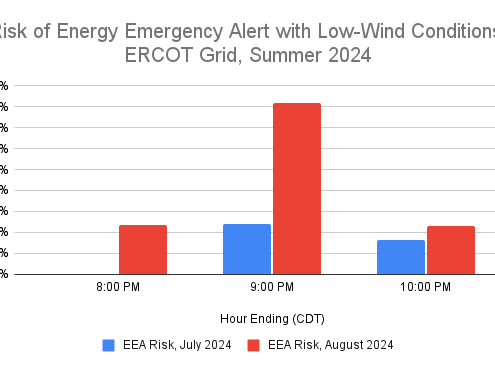Last Updated on November 6, 2023 by Mary Pressler
Understanding TDU Charges in Texas
If you compare electricity rates in Texas, you will notice differences from city to city. Texas has a deregulated power sector, and you can choose your electricity provider – the company who supplies the kilowatt-hours. However, that energy must be delivered from power plants to consumers, and specific companies are in charge of the power grid in each region.
- These companies are called transmission and distribution utilities (TDU), and they charge for delivery of electricity.
- Even if you find identical electricity plans in different parts of Texas, the final kWh price may change because of TDU charges.
The main TDUs in Texas are CenterPoint Energy, Oncor Electric Delivery, American Electric Power (AEP) Central, AEP North, and Texas-New Mexico Power (TNMP). TDU delivery charges are reviewed twice per year by the Public Utility Commission of Texas, on March 1 and September 1.
How Much Do TDUs Charge to Deliver Electricity?
The following table summarizes the latest residential TDU charges published by the PUCT (September 1, 2023).
| Utility Company | Fixed Charge ($) | TDU Charges (Cents/kWh) |
| Oncor | $4.23 | 5.0339 cents / kWh |
| CenterPoint | $4.39 | 5.4694 cents / kWh |
| AEP Central | $4.79 | 5.5226 cents / kWh |
| AEP North | $4.79 | 5.1265 cents / kWh |
| TNMP | $7.85 | 6.0465 cents / kWh |
Assume you are comparing power bills for five homes with a consumption of 1,000 kWh per month and a fixed rate of 8 cents/kWh. Even at the same tariff, final kWh prices will vary if each home is in a different utility territory:
| TDU Service Territory | Cost of 1,000 kWh at 8 cents / kWh | TDU charges for 1,000 kWh | Tocal Cost of 1,000 kWh | Average kWh Price |
| Oncor | $80 | $54.57 | $134.57 | 13.46 cents |
| CenterPoint | $80 | $59.08 | $139.08 | 13.91 cents |
| AEP Central | $80 | $60.02 | $140.02 | 14.00 cents |
| AEP North | $80 | $56.06 | $136.06 | 13.61 cents |
| TNMP | $80 | $68.32 | $148.32 | 14.83 cents |
In this example, the TNMP customer pays 10% more than the Oncor customer due to higher TDU fees, even when all homes have a fixed rate of 8 cents/kWh.
The availability of electricity plans in your city can also affect kWh prices. However, when you compare identical electricity plans in different regions of Texas, the power bill differences can be explained by TDU charges.
You can choose freely among the Retail Electricity Providers (REP) where you live, but you cannot switch your TDU unless you change your residence. For example, if you move from Houston to Dallas, your utility company will change from CenterPoint to Oncor.
The Public Utilities Commission of Texas has compared average electricity prices for residential users in the five TDU service territories, based on 12-month plans. Their comparison includes seven providers: Ambit Energy, Direct Energy, Discount Power, Green Mountain Energy, Reliant Energy, TXU Energy and Veteran Energy.
| TDU Service Territory | Avg. kWh price at 500 kWh | Avg. kWh price at 1000 kWh | Avg. kWh price at 2000 kWh |
| Oncor | 14.20 cents | 13.36 cents | 12.96 cents |
| CenterPoint | 14.96 cents | 14.11 cents | 13.70 cents |
| AEP Central | 14.56 cents | 13.86 cents | 13.51 cents |
| AEP North | 15.32 cents | 14.62 cents | 14.26 cents |
| TNMP | 16.14 cents | 14.95 cents | 13.97 cents |
The effect of TDU charges can be observed here: Oncor has lowest monthly fees as of late 2023, while TNMP has the highest fees. For a home using 1,000 kWh per month, the average monthly bill in the TNMP territory is 12% higher.
In Conclusion
Retail electricity providers can compete with each other because they use the same power lines, poles and transformers. If you switch your electricity plan, you will continue using the same power meter and grid connection. However, competition between TDUs would require a separate grid for each company, which would be impractical and a waste of money – imagine having five times more power lines and utility poles in your city!











Leave a Reply
Want to join the discussion?Feel free to contribute!